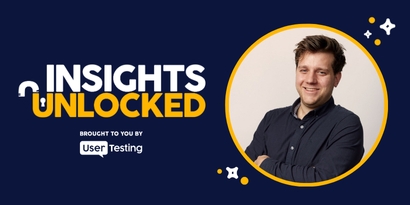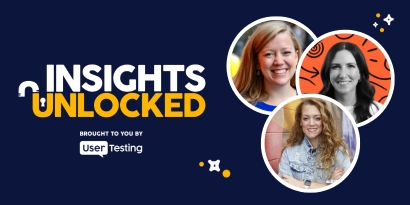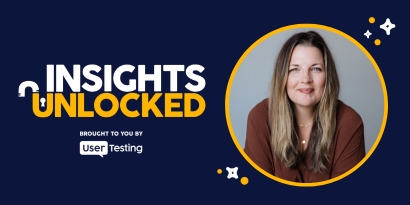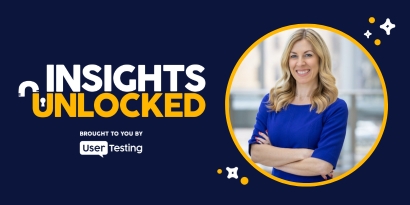Episode 142 | October 28, 2024
How women’s health app Clue uses Jobs to Be Done for product success
Discover how Rhiannon White, Clue's new CEO, uses the Jobs to Be Done framework to drive product development, focusing on user needs like trust, empowerment, and comfort.
How women’s health app Clue uses Jobs to Be Done for product success
The Jobs to Be Done (JTBD) framework has become central to the women’s health app Clue’s product development strategy.
In this week’s Insights Unlocked, Rhiannon White, newly appointed CEO and former Chief Product Officer at Clue, shared how the JTBD framework helps her team understand the deeper, fundamental needs of users—needs that go beyond features and functions, driving real value and engagement.
“The Jobs to Be Done framework is grounded in human needs,” Rhiannon said. “Technology changes, but our users' core needs stay the same. If we can understand what job they’re trying to accomplish, we can continue delivering value, no matter how the technology evolves.”
Clue is a period tracking app, a trusted menstrual health resource, and a thought leader in femtech with more than 10 million active monthly users, Rhiannon said in her conversation with Kerry Johnstone, a Product Researcher with UserTesting’s Design team.
The power of insight-driven leadership
“I had proved that I could ship things and deliver value, but I was missing something. A colleague told me, ‘It’s not enough to just ship—you’ve got to bring insight.’ That was a game-changer for me,” Rhiannon shared.
Rhiannon’s realization early in her product leadership career set her on a path to rediscover her passion for customer insights. This shift in focus led her to establish a weekly ritual where she interviews customers every Friday, something she refers to as her “Friday treat.”
This direct connection with users helps her and her team at Clue stay deeply grounded in real-world problems, allowing them to develop solutions that are not just technically sound but also emotionally resonant with users.
“Connecting with users is the only way to build products that matter.”
White’s commitment to continuous customer feedback goes beyond shipping a product—it’s about ensuring that the product serves a meaningful purpose in users' lives. She believes that the only way to achieve this is by listening directly to customer experiences.
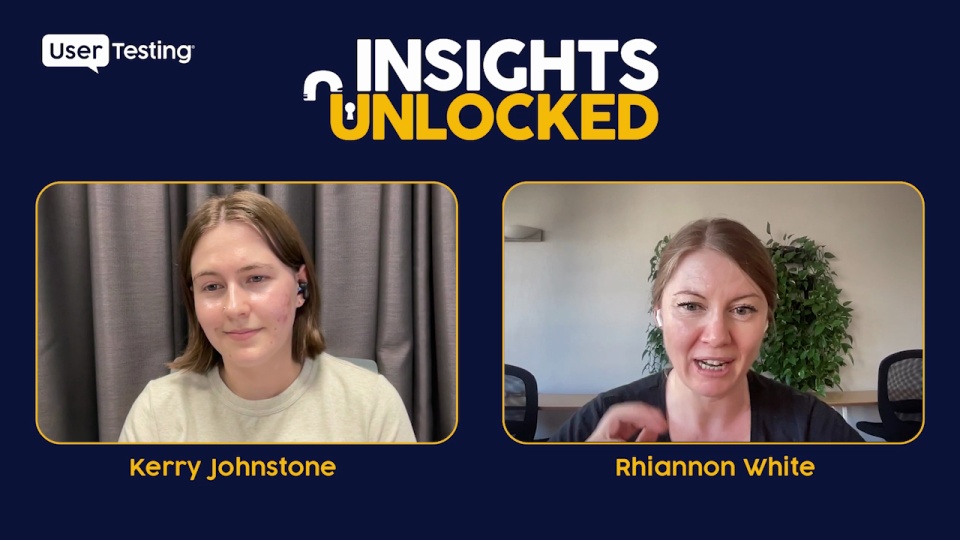
Jobs to Be Done: a framework for product development
One of the primary tools White uses at Clue is the Jobs to Be Done framework. This model helps her team define the core needs users are trying to fulfill with the product. At Clue, four primary "jobs" were identified: trust, orientation, empowerment, and comfort.
“Trust is built through accuracy, orientation helps users understand what’s happening in their bodies, empowerment gives them the tools to manage their health, and comfort helps users feel they are not alone,” White explains.
These jobs guide product development, ensuring that every feature or update is designed with a clear purpose in mind. For example, Clue has worked to improve its pain-tracking features by providing users with detailed data and insights that help them understand their symptoms better and feel validated in their experiences.
"Trust, orientation, empowerment, and comfort are the key jobs we focus on to meet our users' needs."
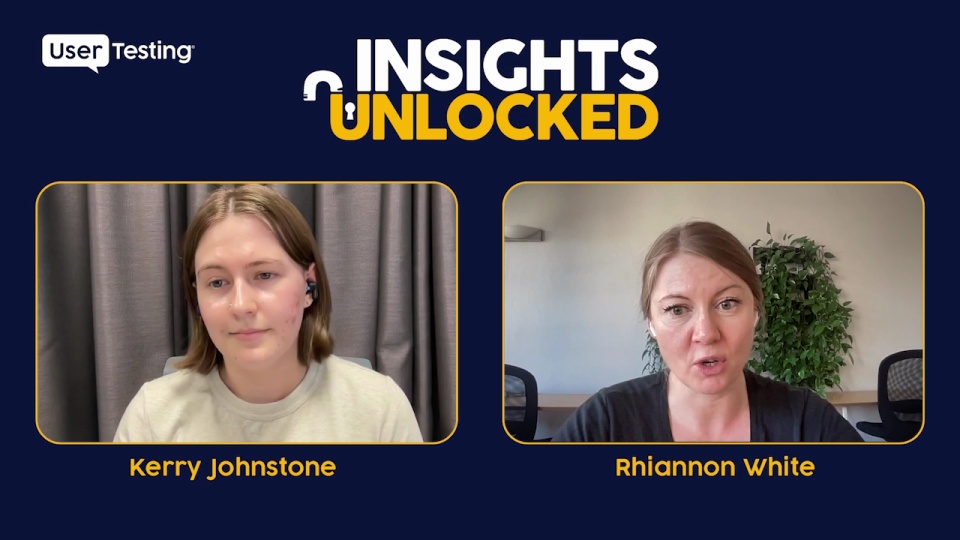
What is Jobs to Be Done?
Jobs To Be Done (JTBD) is a theory and framework used in product development and marketing to understand the underlying reasons why customers buy and use products or services. The core idea is that people don't just buy products; they "hire" them to do a specific "job" or solve a problem in their lives.
Although it has gained traction in the design industry recently, it’s not a new concept. Founding figures like Clayton Christensen, Anthony Ulwick, Bob Moesta contributed to JTBD decades ago to transform the art of innovation into a framework, moving away from ideas-first product development.

Economist Theodore Levitt laid the groundwork in the 1960s with his assertion, "People don’t want to buy a quarter-inch drill, they want a quarter-inch hole.” This simple, but profound statement shifts the focus from studying the product or the customer to studying the job that needs to be done.
By identifying these jobs, businesses can design better products and services that more effectively meet the needs and desires of their customers. This approach shifts the focus from simply improving product features to understanding and fulfilling the broader goals or outcomes that customers are trying to achieve.
Continuous research: an ongoing commitment
One of White’s key leadership principles is the idea that research should not be project-based but ongoing. At Clue, user research is an integral part of the product lifecycle, with fast unmoderated testing happening regularly. This continuous flow of insights enables the team to make adjustments quickly and stay aligned with user expectations without slowing down the development process.
White states, “We’ve been able to demonstrate that by doing particularly fast, unmoderated tests, we can gather insights and iterate in real-time. This approach allows us to ship products with confidence that they meet user needs.”
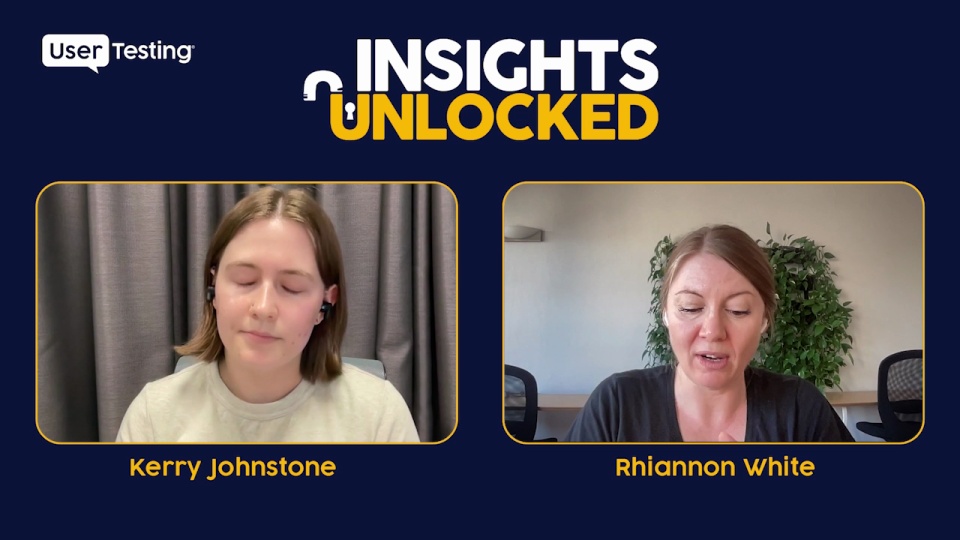
The role of AI and staying close to users
While AI is transforming many industries, White has a cautious approach when it comes to relying on it for product insights. She believes that AI tools can be useful for analyzing large datasets, but nothing can replace the human connection in truly understanding customer needs.
“There’s no substitute for direct user engagement. Every time we abstract insights, we lose a little bit of the human element, and that’s what drives real product innovation,” she says. White advocates for maintaining a personal connection with customers, even in the age of automation and data analytics.
Leading with empathy and insight
White’s leadership at Clue is centered on empathy and deep customer understanding, ensuring that every product decision is rooted in real user experiences. Her emphasis on continuous customer feedback and the Jobs to Be Done framework has positioned Clue as a user-centric company focused on delivering true value.
"It's such a privilege to be useful to our users, in small or large ways," White concludes. Her insights remind us that in today’s competitive product landscape, success comes not just from shipping products but from delivering genuine insight and impact to users' lives.
Episode links:
- Blog: What is the Jobs-to-be-Done framework?
- Rhiannon on LinkedIn
Kerry on LinkedIn

